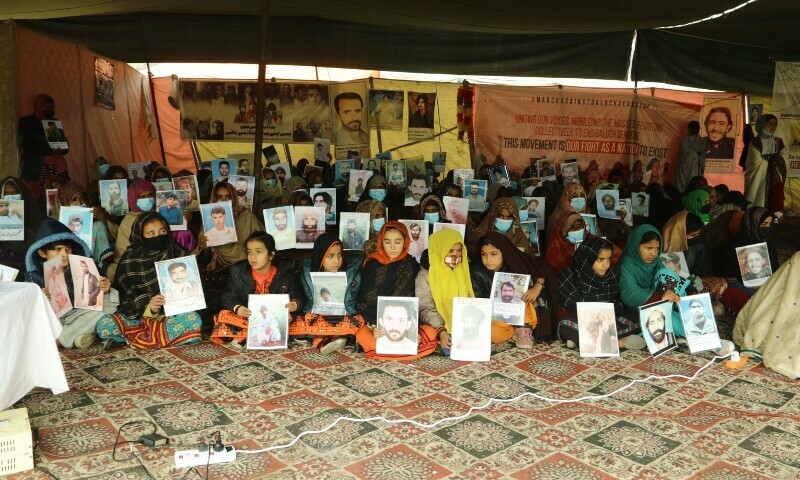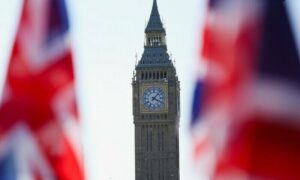The National Press Club (NPC) penned a letter to the Islamabad police on Monday requesting the removal of a Baloch rights camp in the federal capital near the club’s premises.
Baloch protesters are currently demonstrating in a sit-in organised in front of the NPC by the Baloch Yakjehti Committee (BYC) against enforced disappearances and extrajudicial killings.
The BYC camp has been established since December 22 and continues to attract more participants despite harsh weather and pressure from law enforcement agencies.
Organisers of the Islamabad sit-in have accused the police of harassing their supporters and profiling them as well as registering first information reports against them.
The NPC sent a letter today to the Kohsar police station house officer requesting that a plan be drawn up to relocate the protesters to a different location so “the difficulties for the press club and all residents and the business community can be reduced”.
The letter explained that the press club’s sole means of income were press conferences and seminars held at its premises. It said the sit-in and its related issues such as security requirements were impeding not only the club’s members but also the holding of its events, as well as the local business community and residents.
Activist Dr Mahrang Baloch, one of the protest organisers, expressed dismay at the letter and said the journalist and media community “have an obligation to stand with people whose voices are neglected”.
She added: “It is painful to see that even now, the Islamabad Press Club is uncomfortable with our staging a sit-in outside the press club, protesting against enforced disappearances. We understand why they are doing this. There is pressure on us, too, and through various means, we are being harassed and threatened, with the police circulating false information.”
Dr Mahrang said the response by the Islamabad administration to the protesters was “deeply disappointing” and the movement would announce its next step in a press conference on Tuesday at 2pm.
Sammi Deen Baloch, another organiser, said: “Earlier, our protests were not covered, but now the journalists are becoming a party and they are angry and disgusted with our protests.
“I don’t need to tell you what journalistic responsibilities are, but I must say that if there are strong on one side and weak on the other side, then we should take care of the weak instead of the strong.”
Journalists also strongly condemned the letter and expressed their disapproval.
“Now press club offering its shoulders against human rights activists … Nothing could be more disappointing,” said Dawn correspondent Khaleeq Kiani.
Dawn anchor and columnist Arifa Noor rued: “And then we wonder why people have lost faith in journalism … because we have become the tool of the oppressor instead of the voice of the oppressed.”
Veteran journalist Hamid Mir commented along similar lines, saying that the letter had created a rift in the unity of journalists.
Human Rights Commission of Pakistan co-chairperson Munizae Jahangir said the press club was the place where everyone could come and protest, questioning why the Baloch community could not do so. “I condemn all kinds of pressure against them,” she added.
Senior journalist Matiullah Jan said the development was “incomprehensible and deserving of condemnation”.







